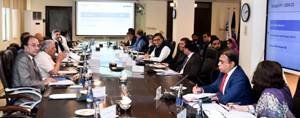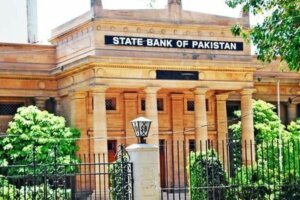The New Travel Advisory for Government Officials
The cash-strapped federal government of Islamabad has recently issued a travel advisory aimed at cutting costs. The advisory specifically targets high-ranking officials such as the President, Prime Minister, Chief Justice, Services Chiefs, and bureaucrats, among others. The advisory outlines the classes in which these officials are expected to travel, as well as other guidelines to reduce expenditure.
Travel Classifications
According to the notification issued by the Cabinet Division, the President and the Chief Justice of Pakistan will now travel in ‘Class-1’. On the other hand, the Prime Minister, Senate Chairman, National Assembly Speaker, ministers, Services Chiefs, MNAs, federal secretaries, grade-22 officers, and ambassadors will travel in business class. The remaining officers of the federal government, attached departments, autonomous and semi-autonomous bodies, corporations, and other institutions under various ministries/divisions will travel in economy class.
Foreign Travel Guidelines
The travel advisory also includes guidelines for foreign travel. It states that officers will only be allowed to travel abroad in cases of obligatory visits, and even then, they are required to travel in economy class. Non-obligatory visits that are to be funded, either wholly or partially, by the government will require an exemption from the austerity committee constituted by the Ministry of Finance. However, if the visits are not funded by the government, they will not require an exemption.
Additionally, the advisory prohibits officers from staying in five-star hotels during their foreign visits. Furthermore, support staff will not accompany officials on these visits unless deemed necessary. In such cases, Pakistan’s missions abroad can be approached for support staff.
Approval Process for Visits
To ensure accountability and proper authorization, the travel advisory outlines an approval process for visits. Cabinet members, federal and additional secretaries will need prior approval from the Prime Minister for traveling abroad. Officials below grade 20 will require permission from the relevant minister and secretaries. If a delegation exceeds three members, it will need permission from the Prime Minister through the Foreign Office. However, the Prime Minister may waive the requirement of routing the summaries for visits abroad through one or more divisions in cases of emergency.
The advisory also emphasizes the importance of sharing information about all foreign visits with the Foreign Affairs Division and Pakistani missions in advance. Delegations from the Foreign Ministry of up to five members can be approved by the ministry itself, but if the delegation exceeds five members, permission must be sought from the Prime Minister.
Exceptions and Exemptions
The travel advisory acknowledges that there may be exceptional circumstances that require exemptions. For example, the Minister and Secretary of a ministry/division cannot be out of the country at the same time, except in “unavoidable and very exceptional circumstances”. In such cases, the ministry/division seeking exemption must submit a case to the Prime Minister, fully justifying the exemption being sought.
The advisory also encourages ministries/divisions to ensure that officers from Pakistan embassies in the country where a meeting/conference is taking place represent Pakistan to the maximum extent possible. However, the concerned ministries/divisions must provide proper briefing material to the Pakistani missions abroad in a timely manner. Conferences that can be handled by Pakistan missions abroad will be identified, and the missions concerned will be duly informed. The Ministry of Foreign Affairs will coordinate in such matters.
Restrictions and Necessities
To prevent excessive foreign travel, the travel advisory restricts Cabinet members from traveling abroad more than three times in a year, except for special circumstances. However, the Foreign and Commerce Ministers are exempted from this restriction.
Furthermore, all divisions must obtain a No Objection Certificate (NOC) from the Economic Affairs Division for visits related to international financial institutions.
For workshops of government officers up to BS-19, where no government funding is involved, the Establishment Division, in consultation with all ministries/divisions, will formulate detailed policy guidelines. Until these guidelines are issued, the current dispensation shall continue.
The advisory also explicitly states that no minister or government functionary shall solicit invitations for participation in trainings, seminars, conferences, workshops, meetings, etc., from any source.
In conclusion, the travel advisory issued by the cash-strapped federal government of Islamabad aims to cut costs by specifying travel classes for high-ranking officials and implementing guidelines for foreign visits. These measures are intended to ensure accountability, reduce expenditure, and promote efficient use of resources.












